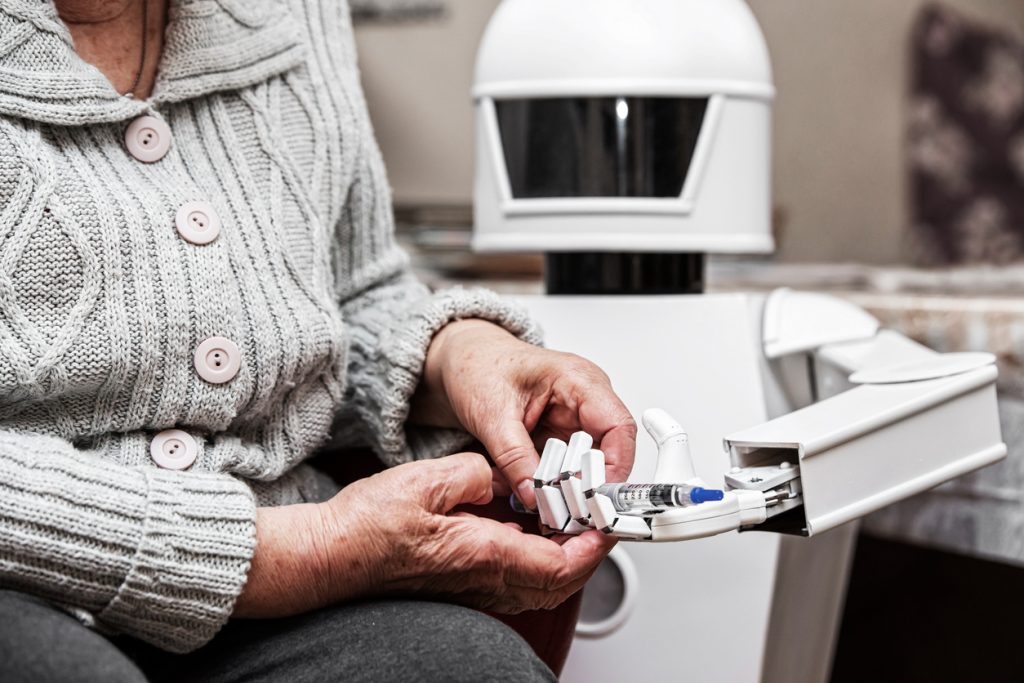Are you considering hiring a PA for an autistic individual? A PA can be a great support for an autistic person, offering help with personal care, household tasks, social skills, and getting out and about.
However, we know that it can be difficult to know where to start looking. Whether you’re autistic yourself and need extra support, or you want to hire a PA to support a family member, you may need some advice.
In this article, we’ll explain what a PA is, how they can help, where to start when hiring a PA for an autistic individual, and what your responsibilities are.

What is a PA?
PA stands for personal assistant. This is a person who supports someone in their own home and out in the community.
When you’re looking for a PA to support an autistic person, you may also hear the terms autism support worker or direct support worker.
Employing a PA is different to receiving support through a care agency or in a care home. If you have a PA, you are their employer. This can mean that you have more flexibility and control over the hours worked and the support you receive.
It also means that you have some additional responsibilities as their employer, such as carrying out pre-employment checks, providing an employment contract, arranging training and providing a pension. You may be able to get support with these tasks from local support groups or a direct payments advisor.
How can a PA support an autistic person?
Every autistic person is different, and how a PA can support them will depend on their needs and goals.
A PA could help with:
- Personal care, which may include support with washing, toileting or continence care, and dressing
- Domestic tasks, such as cleaning, shopping and cooking
- Going to school, college, university or work
- Attending appointments or social events
- General admin, such as booking appointments and making phone calls
Some autistic people may need more help than others, especially if they have a learning disability or other conditions, such as epilepsy.
If you’re hiring a PA for an autistic individual, you probably already have an idea of their needs.
Alternatively, if you’re looking for a PA for yourself, think about the areas where you currently struggle, or new challenges that may be coming up, such as starting university or moving out on your own.
If you’ve had a needs assessment through your local authority, this may identify areas where you would benefit from support.

Advantages of hiring a PA for an autistic individual
For an autistic person who prefers consistency and routine, a PA may be a much better choice than using a care agency.
If you use a care agency, you may see different care workers every day. If the autistic person struggles with changes and meeting new people, this could be very difficult for them. In contrast, hiring a PA means that it will be the same person every time.
You can choose to hire a PA who the autistic person is comfortable with. This may mean someone who shares some of their interests, who is from a similar cultural background, who speaks the same language, who has experience supporting autistic people, or simply someone who puts them at ease. If you use a care agency, you may not have a choice of carers.
For people who prefer to keep to their own schedule, hiring a PA allows you to have more control over the hours they work. You can set out required timings in the employment contract, so the autistic person knows exactly when to expect their PA. If you use a care agency, you may not have this control over timings.
In addition, hiring a PA may save money compared to going through a care agency.
Paying for a PA
The cost of a PA may vary, depending on where you live, the amount of hours required, and the type of support needed.
You can pay for a PA in a few different ways:
- With your own money (known as self-funding)
- With a direct payment from your local authority
- With a personal health budget from the NHS
- With a combination of these methods
For many people, the first step in hiring a PA for an autistic individual will be arranging funding.
You’ll want to start with arranging a needs assessment through your local authority. If the needs assessment identifies that the autistic person needs support, they can arrange a financial assessment. This will determine if the local authority will contribute towards support for the autistic person.
Hiring a PA for an autistic individual: where to start?
Hiring a PA for an autistic individual may seem daunting if you’ve never done it before. How do you find a PA?
You may have someone in mind, such as a family member, friend, or a care worker you already know. If this is the case, you can simply approach them to ask if they would be interested.
However, if you don’t know who you want to hire, you’ll need to advertise. There are a variety of places you could advertise, including:
- A local authority personal assistant register
- Local noticeboards or community newsletters
- Social media, such as Facebook
- Your local JobCentre Plus
Your direct payment advisor or social worker may be able to offer advice about the most appropriate places to advertise in your personal circumstances.
What to look for when hiring a PA for an autistic individual
However, before you advertise, you should think about who you want to hire and write a job description.
If you’re hiring a PA for someone else, they should be part of these discussions, if possible. If you’re hiring a PA for yourself, you may want to discuss with family members, your healthcare team, or your social worker.
Some questions to ask yourself:
- Would I prefer a PA of the same gender?
- Would I prefer a PA from the same cultural background or religion?
- Does the PA need to be able to drive?
- Do I want a PA with certain qualifications?
- What days and hours do I want the PA to work?
- Do I want a PA who has worked with autistic people before?
Once you’ve thought through these questions, you can create a job description.
A job description should include:
- Information about the main duties of the job
- Information about the hours of work
- Information about the rate of pay
- Where the PA will work
- What experience your ideal PA should have
- Any particular skills or attributes that you’d like a PA to have
- How to apply
- The closing date for applications
Once you’ve had some applications, you can schedule interviews. These could be over the phone, via video call, or in person, depending on your preference.
When you’re interviewing prospective PAs, it’s important to make sure that find someone who makes you feel comfortable. After all, you’ll be spending a lot of time with this person.
However, even if you like the person when you meet them, you should still conduct pre-employment checks. This includes making sure that the applicant has the right to work in the UK, contacting some of their previous employers or other references, and arranging a DBS check to see if they have a criminal record.
What are my responsibilities when hiring a PA for an autistic individual?
There are a variety of responsibilities that you’ll have as your PA’s manager, including:
- Providing an employment contract
- Taking out insurance
- Paying their salary, and being responsible for their taxes, NI contributions and pension contributions – you may be able to find an accountant or payroll service to help you with this
- Arranging and paying for any training that they need
- Providing any equipment they need to do their job, such as PPE (personal protective equipment)
In addition, a PA is entitled to paid leave, including annual leave, maternity leave or parental leave, and sick leave. Depending on their hours, they may also need rest breaks. You will need to have back-up plans in place for times when the PA can’t work.
Direct Payments Insurance
If you choose to hire a personal assistant through direct payments (either for yourself or on behalf of an autistic individual, such as a spouse or family member), you’ll need to make sure that you – as the “employer” are adequately covered.
Our direct payments insurance covers employers liability, public liability, and legal expenses cover for people receiving care via the direct payments scheme. Learn more via our direct payments resource centre.
Hiring a PA for an autistic person
While there are some additional responsibilities involved when employing a PA, it can often be a good choice for an autistic person who needs support.
Hiring a PA for an autistic individual gives them a higher level of control over their support, compared to using a care agency or moving to residential care. A PA can provide consistency, which will be comforting to many autistic people.







